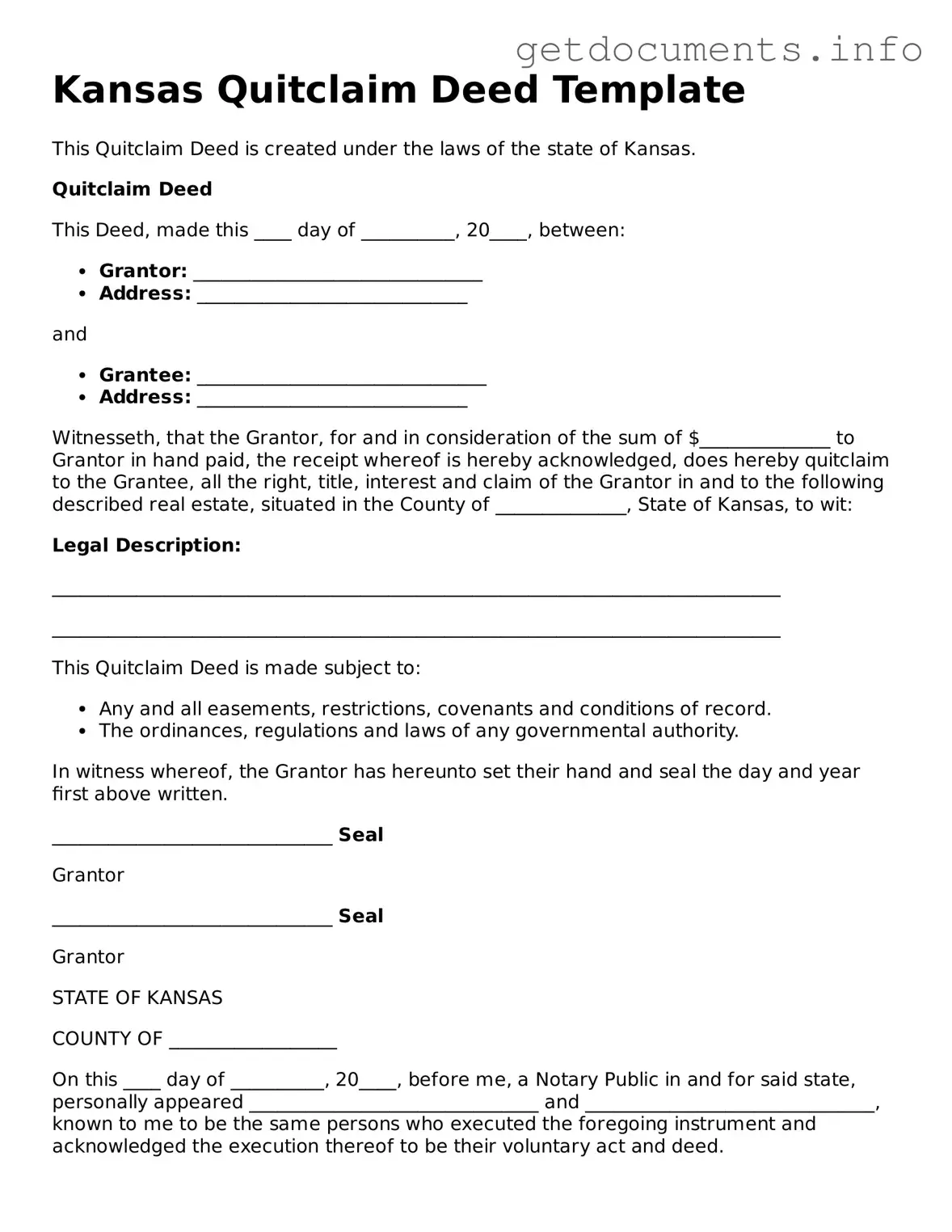Free Quitclaim Deed Template for Kansas
A Kansas Quitclaim Deed is a legal document used to transfer ownership of real estate from one party to another without guaranteeing the title's validity. This form is essential for individuals looking to convey property rights quickly and efficiently. If you're ready to proceed, fill out the form by clicking the button below.
Access Quitclaim Deed Editor

Free Quitclaim Deed Template for Kansas
Access Quitclaim Deed Editor
Got places to be? Complete the form fast
Fill out Quitclaim Deed online and avoid printing or scanning.
Access Quitclaim Deed Editor
or
⇩ PDF File
